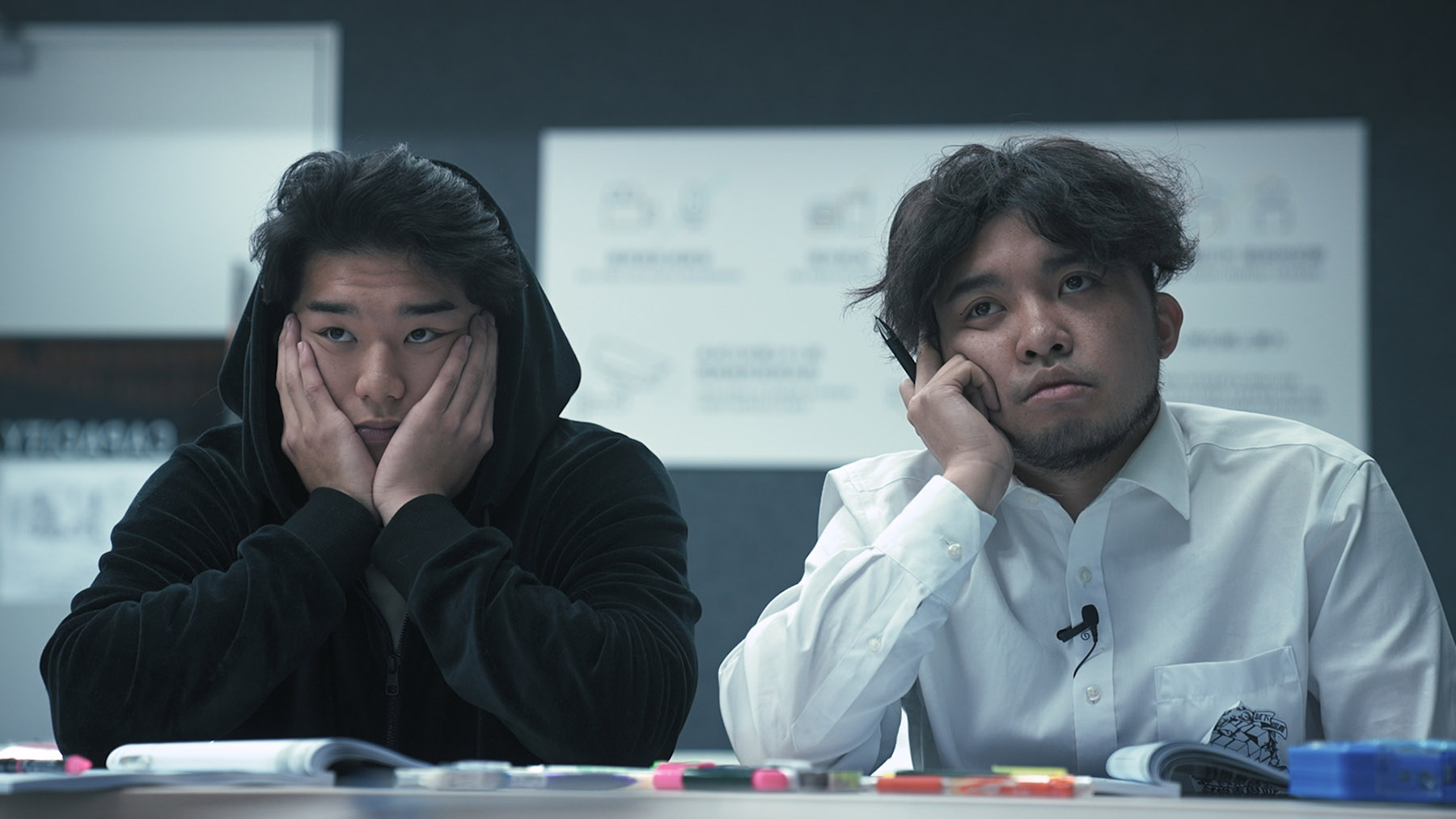
Whether a native of Hong Kong or a long-term resident, chances are most of us are well aware of the seemingly endless string of public exams that high school students in this city take every spring. That doesn’t mean anyone — including the students compelled to write these exams — truly understands them. The grading is opaque despite being a “simple” point-based system — 33222 being the qualifying score. More often than not, test-takers are convinced that their lives are doomed if they don’t get scores good enough to earn them a university seat.
This is where first-time director Leung Yik-ho steps in with Once Upon a Time in HKDSE. Initially a 10-part series on the popular Trial & Error YouTube channel, the content — scattershot episodes, to be more accurate — was recast in the form of a single feature that follows Hong Kong Diploma of Secondary Education (HKDSE) examination candidate Tang Ngai-hong for the four months leading up to exam day in 2023. Adding to the drama, producer Hui Yin — who like director Leung failed the exams when he took them years ago — is trying again.
ALSO READ: Smart, funny, sincere family fare
Along the way, we learn that Tang is a fairly avid football player. He’s smart and incredibly popular, and seems to be a natural leader. On the downside, he is a procrastinator and doesn’t seem too bothered about his future. Hui hires celebrity cram-school tutor YY Lam to help whip Tang into shape and get his scores above the dreaded 33222. We also meet Tang’s parents, who seem a little unconventional by Hong Kong parent standards, and Hui’s mother, who, in hindsight, feels she could have gone easy on her son, back when he was in secondary school.
Leung and Hui offer a moderately enlightening behind-the-curtain peek at the stress caused by the HKDSE exams. They examine the notion of gravity associated with the exams, and the frustration with a system of testing that recognizes only academics as a barometer of excellence. Once Tang connects with Lam, he falls into a punishing rhythm of class, tutoring, studying and sleeping very little on repeat for several weeks. Tang himself makes for a strong subject. He’s not afraid to be emotional and is conscious of his position, wondering at one point why he should be afforded such special treatment when some other kid might be more deserving of a university spot.
There is a strong possibility that Tang’s teachers are especially kind when they face the camera. A few students reminiscing about their own exams lament the lack of recognition for an artistic skill or athletics in Hong Kong’s education structure. Students who simply “don’t like” math, or can’t get their heads around ancient Chinese literature suffer for their failings. It’s a concern that remains unaddressed.
ALSO READ: Political thriller plumbs psychological depths
Once Upon a Time in HKDSE doesn’t raise any hard questions about the value of standardized testing, nor does it examine the controversial content of the exams, or take a deep dive into the suggested link between the HKDSE and the spike in juvenile suicide in Hong Kong in recent years.
The film is a plea for something. It’s just that its makers don’t know what that is yet. And that may be the reason why the film ends on a note of resignation with just a hint of regret mixed in. No one has any answers, but no one seems to know what questions to ask to begin with.


